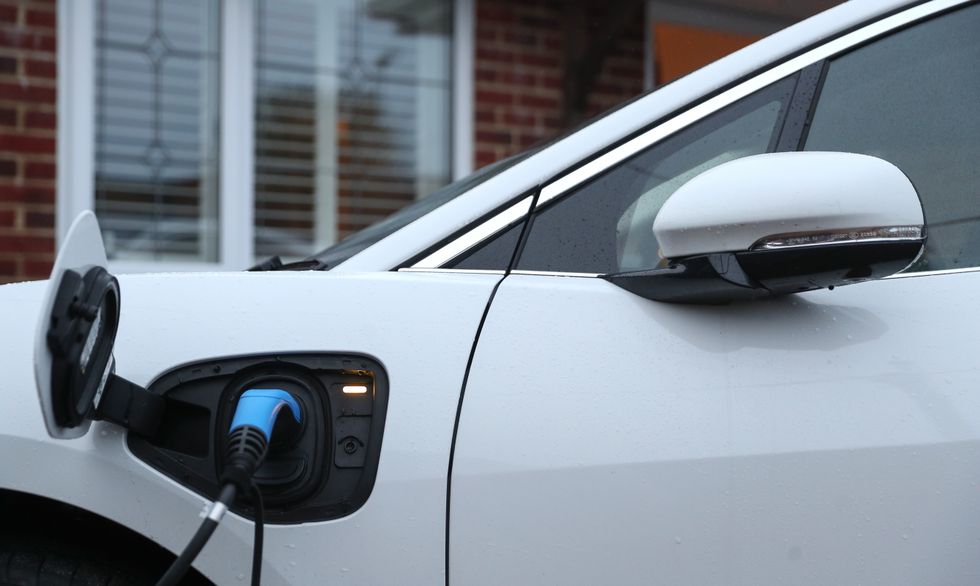
The new Standard Variable Tariff is launching today
Getty
With petrol and diesel prices continuing to rise, electric car drivers could benefit from falling costs
Don't Miss
Most Read
Trending on GB News
Electric car owners could see huge charging savings from today with new electricity prices being introduced for home charging.
From October 1, the price paid by an average household who use gas and electricity and pay by Direct Debit will drop down to £1,923 per year.
From July to September, the average cost was £2,074, meaning prices will be at the lowest rate since October 2021.
This is good news for motorists who charge their electric cars at home, with the Standard Variable Tariff for domestic electricity dropped to 28p/kWh.
WATCH NOW: Labour on electric cars
Motorists with an electric vehicle can save even more if they switch to a smart, EV-friendly tariff, with Octopus and OVO being some of the most popular.
The new Standard Variable Tariff of 28p/kWh would set drivers back around £476.
However, when charging on a smart tariff a typical EV driver doing the UK annual average of 6,800 miles would pay £127.50, when using Octopus Intelligent’s rate of 7.5p/kWh.
In comparison, petrol drivers travelling 6,800 miles a year and getting 40mpg out of their tank will pay £1,209, based on the average unleaded price of 156.55p.
This total could grow even larger with petrol and diesel prices continuing to rise, as experts fear the price of oil could hit $100 (£82.53) per barrel.
Ofgem said it was dropping the prices in response to market stabilisation and suppliers returning to a “healthier financial position”.
Jonathan Brearley, CEO of Ofgem, said it was “welcome news” for Britons struggling with the cost of living crisis.
Ofgem, the energy regulator, estimates that there will be around 14 million electric cars on the road by the end of the decade.
He said he was doing this to move in line with other countries like Germany and New Zealand and to allow upfront costs of the vehicles to continue falling.
Mr Sunak added: “People are already choosing electric vehicles to such an extent that we’re registering a new one every 60 seconds.
“But I also think that at least for now, it should be you the consumer that makes that choice, not Government forcing you to do it.”
David Watson, CEO of Ohme, said the falling cost of the standard domestic electricity tariff would be welcomed by EV owners across the country.
The company allows its users to connect to the national grid in real-time and automatically adjust charging to make use of times when electricity costs are lower.
LATEST DEVELOPMENTS:

There are almost 50,000 EV chargers across the UK
PA
In addition to the hundreds of thousands of home and workplace charges, the national public charging network continues to grow with almost 50,000 chargers nationwide, with more than 2,700 added in August.








